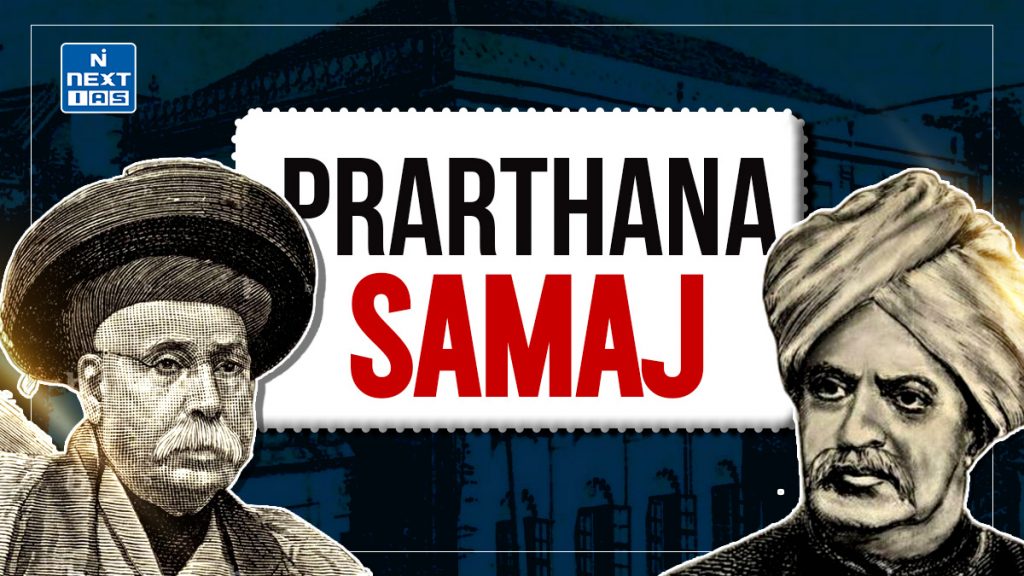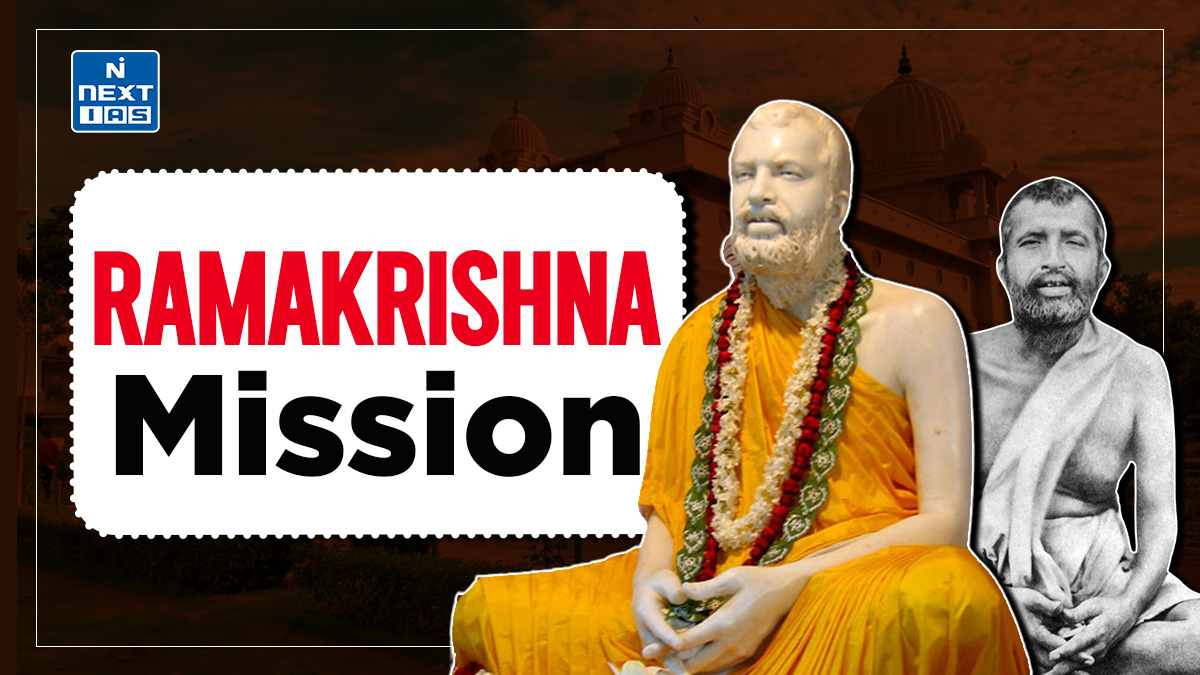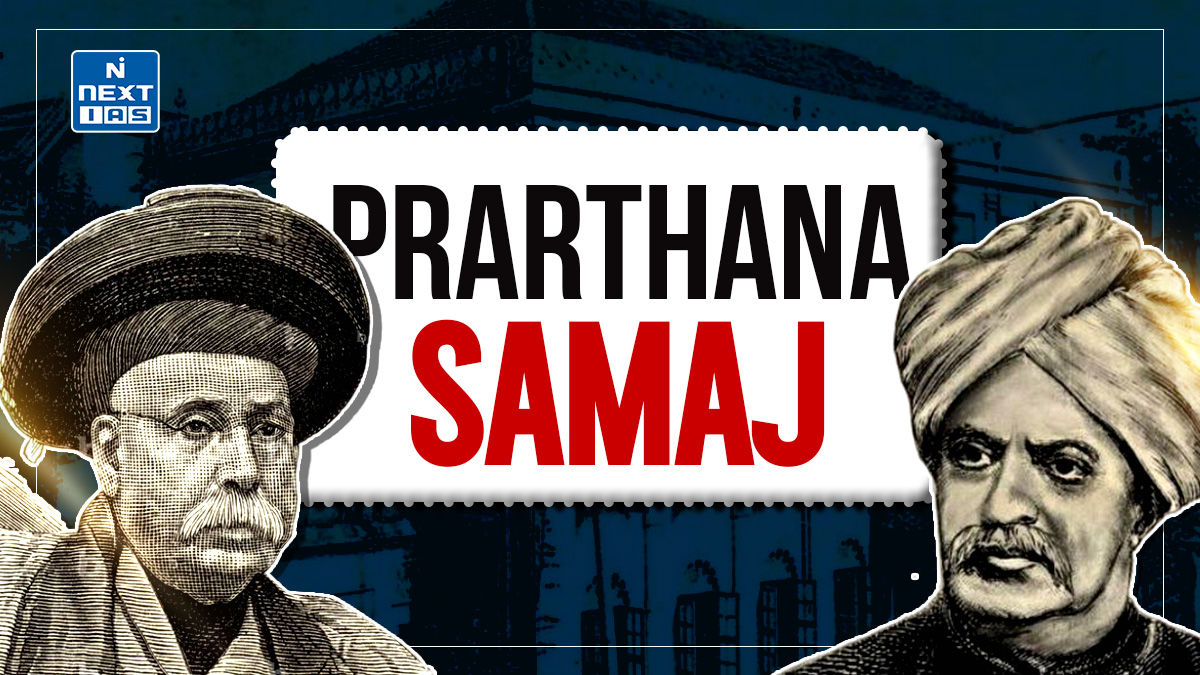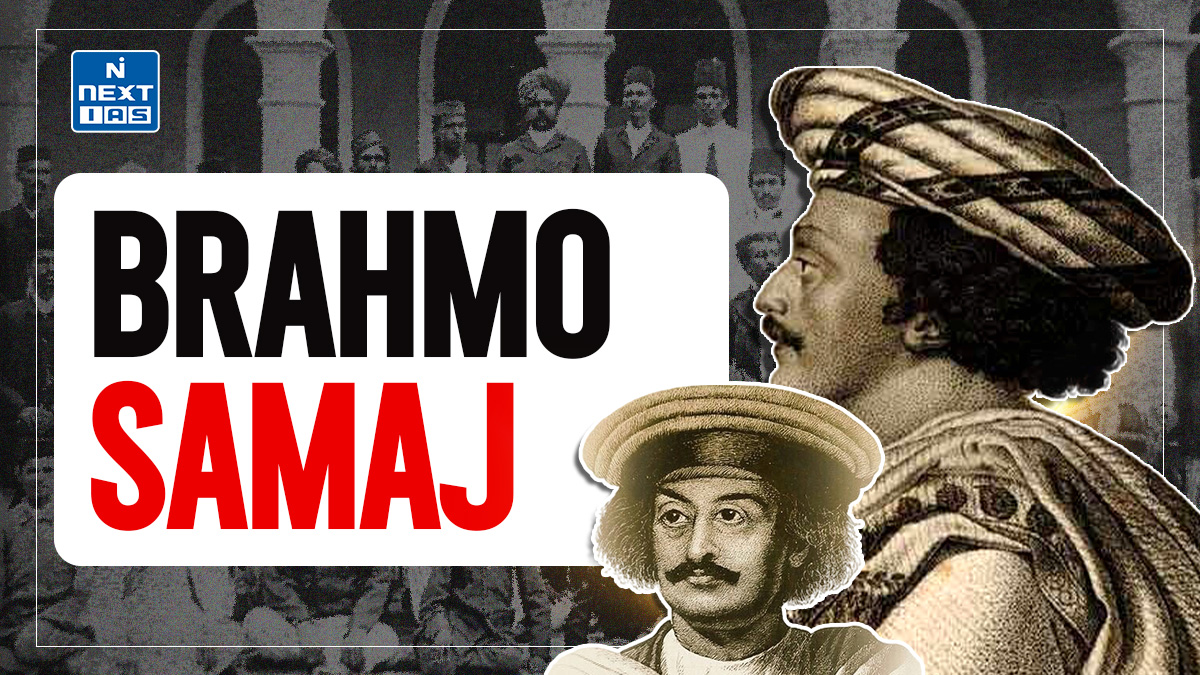
The Prarthana Samaj was a reformist movement founded in Maharashtra in 1867 by Atmaram Pandurang. Its emphasis was on social and religious transformation. The Prarthana Samaj played a significant role in addressing social issues such as caste discrimination, women’s education, and widow remarriage, making it a cornerstone in the progression towards a more inclusive Indian society. This article aims to study in detail the history, contributions, and lasting impact of the Prarthana Samaj on Indian society.
Founder of Prarthana Samaj
- Prarthana Samaj was founded by Atmaram Pandurang in Maharashtra in 1867, and Keshub Chandra Sen significantly influenced its formation.
- Prominent leaders associated with the movement included Mahadev Govind Ranade, Bhandarkar, N.G. Chandavarkar, and K.T. Telang.
History of Prarthana Samaj
- The Prarthana Samaj, founded in 1867 in Bombay (now Mumbai) by Dr. Atmaram Pandurang and influenced by the ideas of the Brahmo Samaj, was a reformist movement focused on social and religious changes.
- It drew inspiration from Keshab Chandra Sen, a prominent Brahmo leader, and aimed to promote monotheism while rejecting idolatry and superstitions.
Read our detailed article on the Brahmo Samaj.
Programmes and Objectives of Prarthana Samaj
- It preached monotheism and denounced idolatry, priestly domination and caste distinctions.
- It emphasises universal brotherhood and equality of all castes.
- It promoted women’s education and widow remarriage.
- It demanded the raising of the marriageable age for both males and females.
Leadership and Social Reform of Prarthana Samaj
- Under Mahadev Govind Ranade’s (1842-1901) leadership, the Prarthana Samaj actively participated in social reform.
- Ranade believed that an ideal Hindu society existed in ancient times, but it had been corrupted by ignorance and superstition during a period of decline.
- He argued that reform was about liberating society from wrongfully imposed constraints and envisioned a comprehensive regeneration of society.
- Ranade articulated his vision of reform as transitioning from constraints to freedom, credulity to faith, status to contract, authority to reason, and blind fatalism to human dignity.
- He regarded social reform as an obligatory duty rather than a mere pastime, emphasising that a true reformer builds upon the incomplete sentences of history.
Political Engagement of Prarthana Samaj
- Ranade was one of the 72 leaders who founded the Indian National Congress in 1885.
- He believed in the synergy between political movements and social reforms.
- However, when he noticed that the Congress focused solely on politics, he established the Indian National Social Conference in 1887.
- This conference aimed to develop principles that connected political and religious movements of the time.
Contributions and Initiatives of Prarthana Samaj
- The followers of Prarthana Samaj founded several associations to promote social and religious reforms, such as the Widow Remarriage Association, the Deccan Educational Society, and the Depressed Classes Mission in Maharashtra.
- They conducted reform movements through these associations.
Expansion and Influence of Prarthana Samaj
- The Prarthana Samaj opened branches in several cities, including Poona (Pune), Surat, Ahmedabad, Karachi, Kirkee, Kohlapur, and Satara.
- Its activities extended to South India, where Veerasalingam Pantulu played a significant role.
- After Swami Dayanand Saraswati visited Gujarat and Maharashtra in 1875, a faction of Prarthana Samaj members, led by S.P. Kelkar, was attracted to Dayanand’s Aryan ideology and temporarily broke away from the samaj.
- Eventually, this group returned to the fold of Prarthana Samaj but later embraced syncretism, connecting their ideology to the Maharashtrian Bhakti tradition.
Analysis of Prarthana Samaj
- The distinction between Brahmo Samaj and Prarthana Samaj was in the latter’s subtle approach.
- The Prarthana Samaj believed that change would be gradual in society; thus, it was more accepted by people.
Conclusion
The Prarthana Samaj, founded with social and religious reform ideals, became a pivotal force in transforming Indian society through its progressive outlook on caste equality, women’s education, and monotheism. Its emphasis on gradual reform and alignment with traditional beliefs allowed it to garner widespread acceptance and influence across India, especially in Maharashtra. Unlike other reform movements, the Prarthana Samaj fostered an inclusive and adaptive approach, connecting deeply with Indian values while fostering positive change. Its legacy of promoting a more equal and educated society remains significant in India’s social reform history.
Frequently Asked Questions (FAQs)
Who founded Prarthana Samaj?
Prarthana Samaj was founded by Atmaram Pandurang in 1867 in Bombay (now Mumbai).
Who established Prarthana Samaj?
Prarthana Samaj was established by Atmaram Pandurang, with significant contributions from social reformers like M.G. Ranade and R.G. Bhandarkar, who later strengthened the movement.
What were the principles of Prarthana Samaj?
The principles of Prarthana Samaj included monotheism, abolition of idolatry, promotion of social reforms such as widow remarriage, abolition of child marriage, upliftment of women, and removal of caste discrimination while emphasizing ethical living and spiritual progress.





